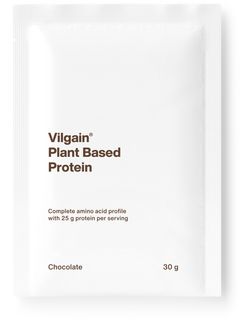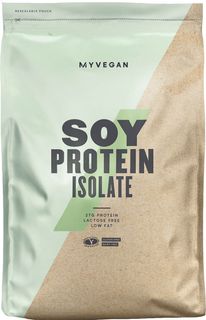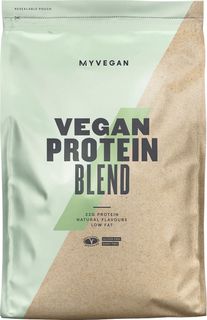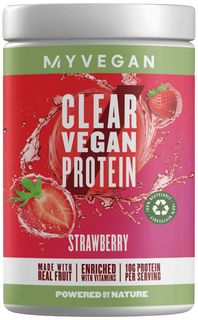
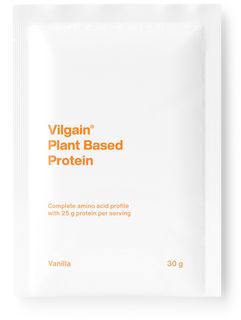

Plant‑based proteins for vegans and vegetarians
Vegan protein refers to protein supplements that are made exclusively from plant sources. Due to their composition, these proteins are naturally lactose‑free, cow's milk protein‑free, and in some cases, gluten‑free. Compared to dairy (e.g. whey or casein) proteins, however, they have lower essential amino acid content, poorer and slower digestibility, poorer solubility and poorer taste. For plant proteins, it is possible to choose from single or multi‑ingredient proteins.
Types of vegan proteins
The best‑selling single‑component proteins include:
- soy protein - the most popular plant protein, boasting a high protein content. Its composition of essential amino acids is similar to animal proteins and its consumption is associated with a reduction in cholesterol. It has fallen out of favour because of the common allergy to soya;
- pea protein - comes from yellow, not green, peas, which causes its beige colour. It contains all the essential amino acids, but with a low methionine content. Besides, it is a good source of arginine, BCAA or iron;
- hemp protein - due to its low lysine content, it cannot be classified as a complete protein. It is a good source of fibre, iron, zinc, magnesium and alpha‑linolenic acid (a plant source of omega 3);
- rice protein - is usually made from brown rice, which makes it a good source of fibre, calcium or iron. On the other hand, it contains low amounts of essential amino acids.
The usual macronutrient composition of these proteins can be compared in the table below:
| Type of protein | Protein content | Fat content | Carbohydrate content |
| Soy | 88 g | 3 g | 0 g |
| Pea | 75 g | 7,5 g | 5 g |
| Hemp | 50 g | 10 g | 21 g |
| Rice | 80 g | 10 g | 4,5 g |
Pumpkin, sesame, peanut or almond proteins, for example, are also experiencing a big boom and are more likely to be used in cooking or baking than in protein drinks.
How to use vegetable proteins?
Plant proteins are particularly suitable for vegans, vegetarians, people with lactose intolerance or allergy to cow's milk protein. Due to their lower environmental burden, they are also a suitable alternative for ecologically minded individuals.
Vegan proteins are used in the same way as animal proteins - to replenish protein during the day, for weight loss or to gain muscle mass. However, it should be remembered that they have a lower utilisation rate, hence a lower ability to build muscle. The usability of plant proteins can be enhanced:
- by increasing the amount of plant proteins,
- by joint use with probiotics, or
- by combining multiple plant protein sources.
It is the combination of several types of plant proteins that is increasingly used in vegan proteins. You can try our pea‑rice Vilgain Plant Based Protein which is supplemented with methionine, giving it a comprehensive amino acid spectrum.
More plant‑based protein intake
If you're a vegan or vegetarian who struggles with low protein intake, try, for example vegan protein bars, biscuits, crackers, jerky or protein chips. You can then incorporate some of the best sources of plant‑based protein into your regular diet.
| Types of protein: | Soy, pea, rice, hemp |
| Without: | Gluten, lactose, artificial sweeteners |
| Brands: | PEScience, MyProtein, Extrifit... |

